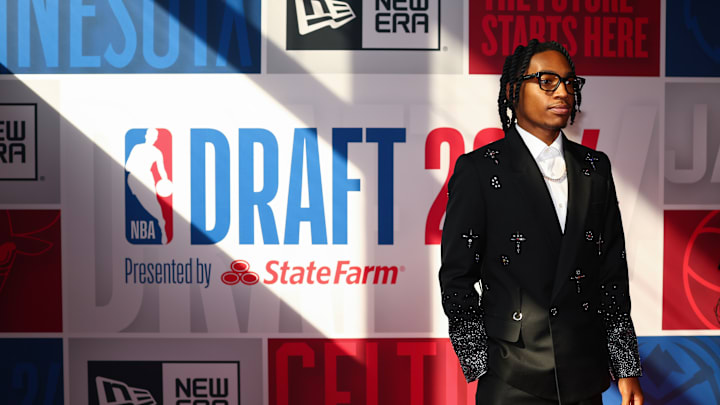After an eventful day one of the 2024 NBA Draft, the Minnesota Timberwolves made yet another trade. This time, instead of an aggressive maneuver, the Wolves dealt guard Wendell Moore Jr. and the 37th overall pick to the Detroit Pistons for the 53rd pick in the second round.
Minnesota is trading Wendell Moore Jr. and the No. 37 pick in today's Day 2 of NBA draft to Detroit, sources say.
— Shams Charania (@ShamsCharania) June 27, 2024
Minnesota will have a longer wait until they're back on the clock following this trade. Although trading down is a passive move, the Wolves' priority is clear. Minnesota used two first-rounders on prospects who will combine to earn roughly $9 million next season. Moore Jr. was scheduled to earn $2.5 million, thus cutting costs takes precedence.
By replacing Wendell Moore Jr.'s $2.537M contract with a veteran minimum contract ($2.1M), the Wolves will save about $450k in salary -- which will also save them a couple million in luxury tax payments dependent on how far above the tax they finish the season out at.
— Dane Moore (@DaneMooreNBA) June 27, 2024
But if…
Rather than paying Moore Jr.'s contract, Minnesota will save money whether they decide to use the cap space to add a veteran or sign the rookie they'll draft with the Pistons' second-rounder to fill out the roster. Although the savings aren't substantial, avoiding the second tax apron is of the essence.
If the Timberwolves decide to use the cap space on a veteran on a minimum contract, they'll save roughly 450k. And if Minnesota plans on keeping whomever they select with the 53rd pick, the savings will be north of $1 million.
Minnesota made this move to improve financial flexibility
Avoiding the second tax apron is becoming the new norm amongst the NBA's highest-paying owners. Since the new CBA was implemented, the second-apron repercussions will be fierce. Teams lose the ability to use any mid-level exception; they cannot combine multiple players' salaries in trades and cannot utilize trade exceptions from previous seasons or cash to further facilitate deals.
Now selecting their next prospect late into the second round, the draft pool will be sparse, yet the difference between the 37th and 53rd picks isn't too drastic. Furthermore, the Wolves have been linked to one of the more intriguing prospects of the draft who's expected to land in Los Angeles.
Armed with the 53rd selection, there's a chance Minnesota takes a swing on former USC guard Bronny James. If James isn't the choice, expect the Wolves brass to select a wing or big, as both the Wolves' first-rounders were under 6-foot-6.
